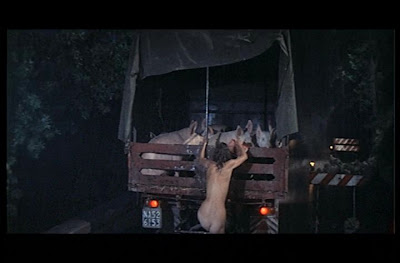
I´ve never taken Beverly Sills seriously; with such a name, and the pictures I had seen of hers, I always thought she was a kind of operatic Carol Burnett with Mado Robin´s throat.
I haven´t really changed my mind, just though noticed she was a very good singer, with quite a broad voice, which she was able to use for fine musicality.
Her performances in the MET are legendary (her trade marks being her roles in Manon, Roberto Devereux and La Fille du Régiment). A fine Strauss Singer was she also. Fantastic should have been as well her appearance in the Muppet Show. A review from her website:
"BEVERLY SILLS: The legendary opera star shows off her high notes, taps her tootsies to a cowboy tune, and leads the Muppetipolitan Opera Company in an unforgettable production of Pigoletto."
I haven´t heard her Pigoletto yet, but I can offer the Aria "Ah! Vous dirai-je, maman - Varations" from Adam´s Le Toréador, where she has plenty of opprtunities to show off her coloratura.












 Minute 14: still top-less; we get to see the fantastic villa; now she takes breakfast, notices that everybody is also naked, and meets Marcello (he wears terrible sunglasses, and a horrible moustache). Marcello praises her tits; she likes it! They date for later. You can tell she is one of these American tourists looking for sexual freedom in Europe.
Minute 14: still top-less; we get to see the fantastic villa; now she takes breakfast, notices that everybody is also naked, and meets Marcello (he wears terrible sunglasses, and a horrible moustache). Marcello praises her tits; she likes it! They date for later. You can tell she is one of these American tourists looking for sexual freedom in Europe. 
 Minute 24: we see her tits again, now she wears a pyjama. Polanski is also playing a character. There are some sex maniacs fucking and mouning all around.
Minute 24: we see her tits again, now she wears a pyjama. Polanski is also playing a character. There are some sex maniacs fucking and mouning all around. 
 Minute 38: Rub your eyes! Sydne has found Marcello -dressed up as tiger- and is taming him with a whip.
Minute 38: Rub your eyes! Sydne has found Marcello -dressed up as tiger- and is taming him with a whip.  Minute 39: Sydne had a good fuck, you can see in her eyes.
Minute 39: Sydne had a good fuck, you can see in her eyes.  Minute 48: after having an erotic dream, Sydne wakes up without trousers, she blames Roman. Now she is really broken, forget about the rape attempt, being left without trousers is the worst thing a chick could go through!
Minute 48: after having an erotic dream, Sydne wakes up without trousers, she blames Roman. Now she is really broken, forget about the rape attempt, being left without trousers is the worst thing a chick could go through!

 Minute 79: Sydne and Marcello on the beach; we get a glimpse of Marcello´s crotch. They fuck, Sydne loves Marcello.
Minute 79: Sydne and Marcello on the beach; we get a glimpse of Marcello´s crotch. They fuck, Sydne loves Marcello. he is Napoleon now, and humiliates her (I didn´t find this one funny)
he is Napoleon now, and humiliates her (I didn´t find this one funny)
 Sydne gives an anatomy lesson...
Sydne gives an anatomy lesson...
 She leaves in a truck with pigs...
She leaves in a truck with pigs... ... The End!
... The End!











